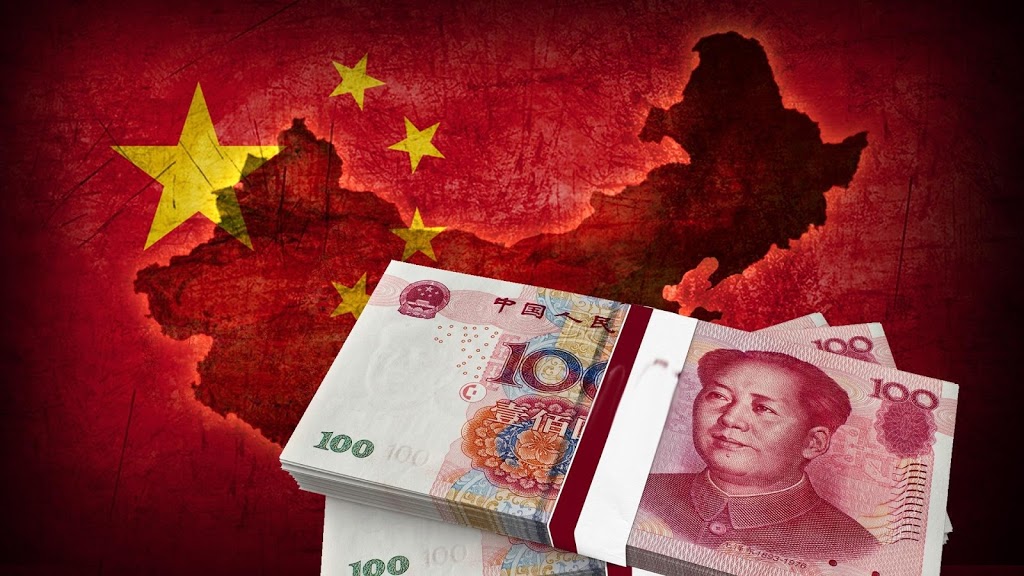Is Chinese Economy Going to Collapse?

A fairly startling commentary showed up in the South China Morning Post on Sunday proposing that the whole Chinese economy is only one monster Ponzi plot that will definitely collapse. Possibly not today, perhaps not tomorrow, but– as Humphrey Bogart may once have said– soon, despite the fact that not before the nineteenth National Congress of the Communist Party of China, slated for October at some point. It’s a well known fact that there are two uncontrollably disparate perspectives on China’s monetary prospects, yet Jake Van Der Kamp’s is among the harshest, freighted all things considered with certainty and resembling practically scientific style and effortlessness.
The main thing propping the Chinese economy up, obviously, is the assurance to prop the Chinese economy up. Each new steel plant makes more interest for steel, to extend port offices and construct boats to convey iron metal to make more steel for steel factories, ports and ships. What’s more, more steel, clearly. The updrafts of hot credit expected to pay for such a lot of growing, self-repeating financial action have made the most gigantic monetary storm mists simply hanging tight to release a remarkable revision on a clueless populace.
Then again:
The other variant of occasions is altogether unique. China has endured a slight downturn, defeat a tremendous instance of capital flight and, in spite of the fact that the capital market is in lockdown, by the by has money to consume for a wide range of politically ambitious– for which read financially outlandish– ventures.
The new rapid rail in Laos for instance, has initiated development evaluated at around $6 billion or half Laotian GDP. The Belt and Road activity is all many can discuss globally notwithstanding being minimal in excess of an efficient yearning, a few maps and a ton of huge round numbers.
Abroad acquisitions have been crushed a bit, yet where key interests are principal, there has all the earmarks of being an open check book. Bhutan was apparently offered $10 billion just to tone down its criticism of China’s Doklam attack, which is interested given that China claims it as undisputed Chinese territory. Whatever sees you go up against the benefits of their case nonetheless, $10 billion is not a little measure of cash. Especially for a nation that should be, and without a doubt professes to be, deleveraging.
Who’s correct?
Most commentators so far appear to be substance to adhere to their weapons, while investors are multiplying down, Crispin Odey and Kyle Bass being the greatest and most consistent China bears. The genuine trouble most face however that is the proof backings the two cases to some degree. Bulls center on development and political strength, proposing that whatever you think, the administration has numerous switches, and still sound forex saves with which to pad any insecurity.
Bears will in general spotlight on the conspicuous issues that keep developing, the absence of any significant advancement towards change, the huge and uncommonly fast develop in by and large obligation, and the expanding disparity between what the administration state they have to do, and what they in reality at that point do.
For instance, in 2013 I saw an inclination to gather midterm change and macroeconomic targets into two classifications; “around five years” and “somewhere in the range of ten and fifteen years,” alluding to the inexact timescale in which they would probably be accomplished. The swapping scale, it was usually accepted, would be changed and skim free in “around five years.” Capital markets would open up in “around five years” however be completely open “in the middle of ten and fifteen years.” The motivation behind why these fairly ambiguous timescales would be bandied about is basically that everybody at the time trusted these goals would be come to sooner or later, yet that it was difficult to bind the precise strides by which they would be accomplished.
Moving goalposts?
Since that time, while individuals still discussion about the future in rather broad, optimistic terms, the money is a lot further far from advancement than it appeared in 2013, and capital markets are solidly closed. In any case, rather than investigators raising some broad questions, it is very normal to experience rather tired protections of what the Chinese government have done. Steadiness is presently commended as an extraordinary preferred standpoint China has over different economies.
They were correct, it is contended, to shut down capital outpourings, and the accomplishment of their technique on the swapping scale demonstrates the fundamental quality of China’s model, as though keeping the conversion scale from falling has all of a sudden progressed toward becoming as vital as allowing genuine value discovery.
Additionally, it has been a standard hold back for a considerable length of time that China would inevitably open up, that their propensity for controlling the web would gradually shrink, and regardless, Chinese individuals approached all the data they truly needed and the legislature couldn’t have cared less around a couple of outsiders utilizing VPNs. All things considered, it gives the idea that they do all things considered.
So while Jake Van Der Kamp rehashes his long held view that China’s economy has turned out badly, and others practice a similar old contentions about whether China’s ceaseless development will continue mortifying the unbelievers, it merits recalling that for a Ponzi plan to work, a key fixing is a populace willing dependably to promise itself that everything will work out at last, in spite of mounting proof despite what might be expected. How frequently, for instance, should a China watcher recommend that some change or other should occur, before its nonattendance really occurring realizes a faltering of in general desire? Many, doubtlessly, as we read bits of gossip about another extremely rich person kept from leaving the nation, but then another story about tremendous, concealed obligations.


0 comments